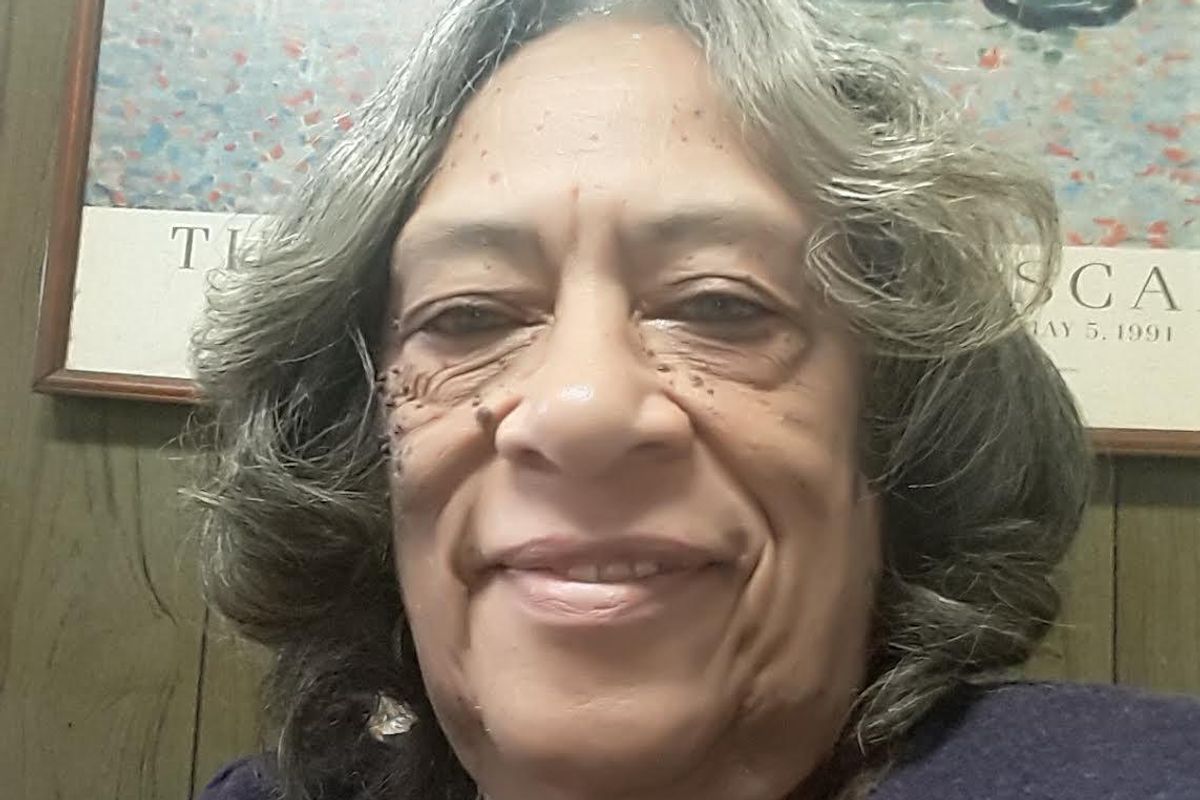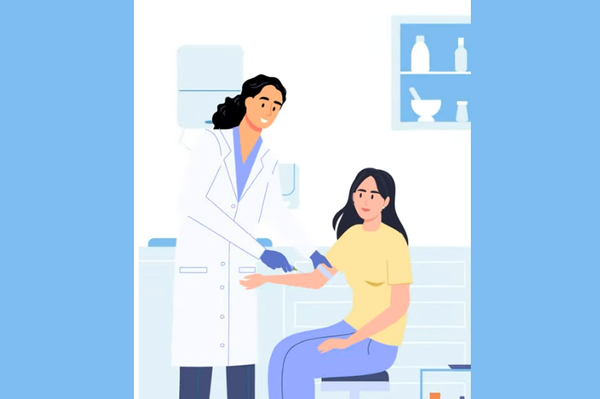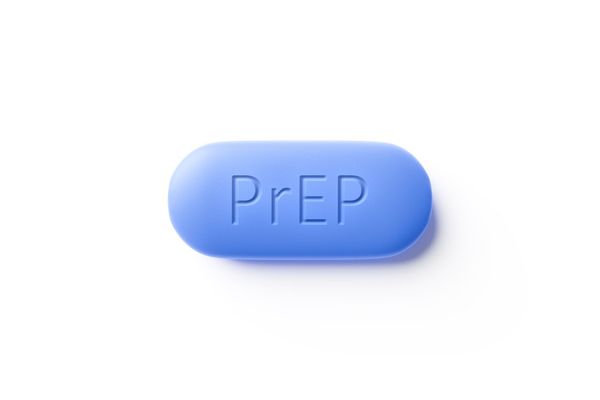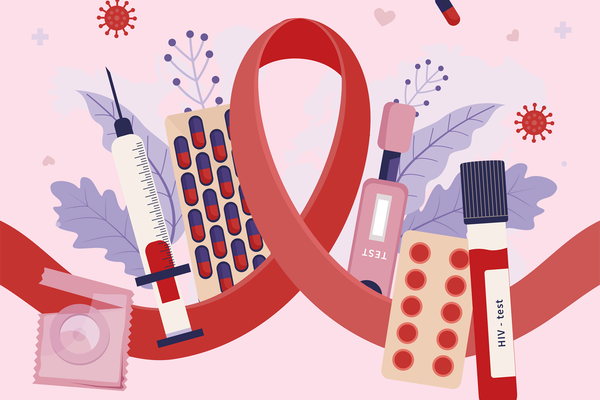As told to Nicole Audrey Spector
The year was 1986. I was 39 years old and newly wed to the love of my life, with whom I bought my first house. My three daughters and stepdaughter were both grown, married and doing well. I loved my job in the finance industry. My life was good — no, my life was wonderful.
One day, my company hosted a blood drive. Considering that millions of Americans need blood each year, I didn’t think twice about donating.
Several days later, I received a letter from the Red Cross instructing me to visit one of their clinics for information about my recent blood donation.
I was terrified. What did they need to talk with me about? But the letters HIV or AIDS never crossed my mind. Back then, the rhetoric around that still largely mysterious virus was only used in association with gay men, and, to a smaller extent, intravenous drug users and unsafe sex workers. I was none of those things.
So when the counselor I met with at the clinic told me that my blood showed I had the human immunodeficiency virus (HIV), I was more dumbfounded than anything else. How on Earth had I been exposed? When? Under what circumstances? This wasn’t a disease that successful, married Black mothers contracted! Was there some mistake? I had so many questions.
The Red Cross counselor was little help. The only concrete takeaway from our meeting was that I, afflicted with a virus that had no cure, was in bad shape.
In other words, I was dying. This was baffling because I didn’t even feel sick.
Yet dying wasn’t my greatest fear — it was the fear of harming my precious and still so very young marriage. How do you tell your new groom that you have a deadly virus and that he needs to get tested for it? What if he has it too? Would we go down the rabbit hole of wondering who infected whom?
We were a couple strongly rooted in love and loyalty, but this diagnosis felt like a test neither of us could ever have anticipated.
I found my husband at his place of work and took him into a quiet room, where I spilled my terrible news.
“Well,” he said, embracing me, his voice unbreakably calm. “We’ll figure it out. No matter what, I’m right here with you.”
He passed away earlier this year, but in all our time together, he never broke his word — not even when he found out that he also had HIV. And we never played the blame game with one another, understanding that what mattered was not how we got it, but what we made of our lives together once we knew.
The counselor from the Red Cross referred me to Johns Hopkins, a highly respected hospital that just happened to be close to where I lived and that had a clinic specializing in HIV. There, I met with a group of doctors, psychologists and nurses. I was put on zidovudine (more commonly known as AZT), a medication that has been shown to slow immune system damage caused by HIV.
As my mental health plummeted due to my doomy, hush-hush diagnosis, I was also given antidepressants.
The antidepressants helped my mood some, but they didn’t lessen the weight of the fear of being found out. HIV is still horribly stigmatized, but back then the phobia and ignorance around the virus was far worse. People with HIV were perceived as pariahs who reeked of contagion. Folks were often wary of sitting on toilet seats lest they “catch AIDS” from the person who’d used it before them.
And everybody — oh, just everybody — was cracking jokes about the virus. Whenever I overheard an AIDS joke, my heart fluttered in my throat like a trapped bird. Did they know about me?
Shortly after I was diagnosed, I began getting sick here and there (I was especially prone to respiratory infections) and needed to go to the doctor more and more, which meant missing work.
By this time, I felt so close with my colleagues (who I frequently socialized with outside of work) that I decided to tell my supervisor why I was getting sick so often. I loved my job and didn’t want this big scary secret to cost me it. So I braced myself and told my boss that I had HIV.
She closed her office door behind me and asked me to resign. She looked at me as though just touching me would get her infected.
I wound up settling for a year’s pay with health insurance benefits. I likely could have successfully sued, but my health coverage was too important to risk. Moreover, I didn’t want to be publicly outed as having HIV.
All these years later, I couldn’t be more different in my relationship with having HIV. Now, I’m perfectly content to scream my diagnosis from the rooftops. In fact, I seek out opportunities to share. I feel like God gave me a voice to talk about this disease and now that I’ve opened my mouth, I won’t shut up.
My attitude changed when, about five years after my diagnosis, my priest wrote about me and my fight with HIV in the church newsletter. At first, I wasn’t particularly thrilled with the exposure, but once it was over and done with, I experienced nothing but kindness and grace from my church group.
Suddenly I was the unlikely face of HIV in my community, and it wasn’t a bad thing; in fact, it was liberating and empowering. People with HIV — including other Black women — knew that they could come talk to me. Some 30 years later, I’m still with that church and as loved and cared for as ever.
And I’m still talking about HIV and inviting others to talk about it with me.
Today, I’m on the right blend of medication for HIV, my viral load is undetectable and I don’t feel sick at all. In addition to my three daughters and stepdaughter, I now have 10 grandchildren and 19 great-grandchildren. Plus, I have countless friends from my advocacy work.
My life is good.
No, my life is wonderful.
This resource was created with support from BD, Janssen & Merck.
- The Connection Between HIV and Mental Health in the Older Adult ... ›
- It May Come as a Surprise, but Older Women Get HIV, Too ... ›
- Your Guide to HIV & Aging - HealthyWomen ›
- Living with HIV: What Women Need to Know, as Told by Maria Davis ... ›
- Stories of Black women aging with HIV: 'My life wasn't what I hoped it ... ›
- Protecting Yourself or Your Partner from HIV - HealthyWomen ›
- Fight Against HIV Stigma — Your Words Can Make a Difference - HealthyWomen ›
- I Kept My HIV Diagnosis a Secret for a Year - HealthyWomen ›
- I Was Diagnosed with HIV When I Was 15 - HealthyWomen ›





